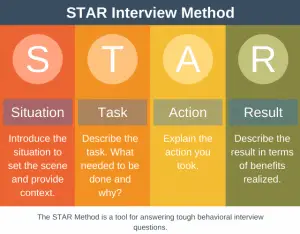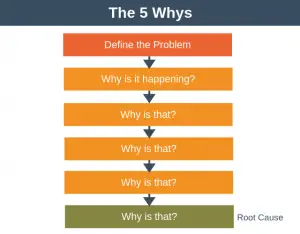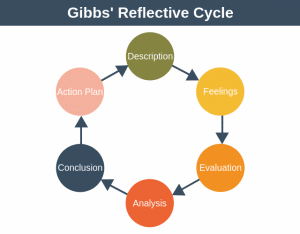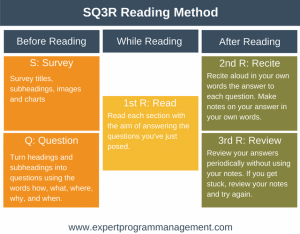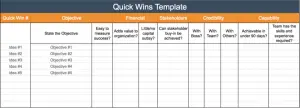The Hexaco personality model gives you an in-depth understanding of yourself by mapping your personality to six personality dimensions.
Why is this useful? Because as humans we all have blind spots, and as a result, we’re not good at identifying our strengths and weaknesses.
Imagine a colleague who likes to take center stage but unbeknown to them, they fail to give others a chance to express their opinions. Having poor self-awareness like this means your colleague has a blindspot.
One reason for this is because of the Dunning-Kruger effect, which suggests that you can overestimate your abilities. You cannot see the gap between your perceived abilities and actual abilities.
What can you do about your blind spots? The only way to discover your blind spots is through some form of feedback. One way to get feedback is from others; another is by taking a personality test.
A personality test may highlight some things you didn’t know about yourself. It encourages you to see the differences between what the test says about you and what you think about yourself.
This fresh perspective gives you a chance to see yourself in a new light. You can then use this information to address your weaknesses.
There are many personality tests in existence, one of which is the Hexaco personality test based on the Hexaco personality model. The Hexaco personality model consists of a six-dimensional model of human personality. The six dimensions are:
- Honesty and Humility
- Emotionality (or Neuroticism)
- Extroversion
- Agreeableness
- Conscientiousness
- Openness
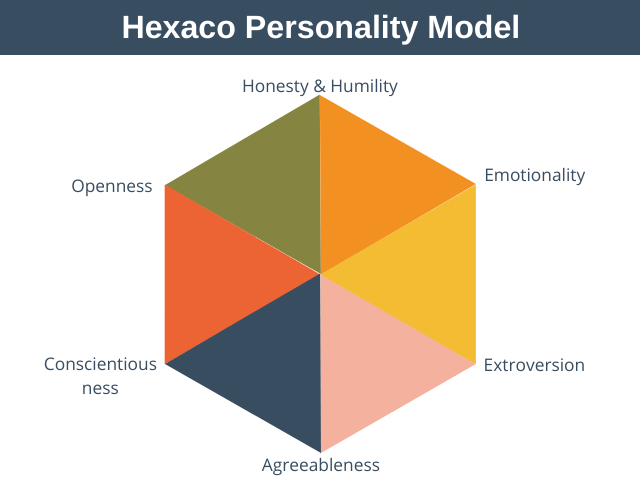
Let’s examine each dimension of the Hexaco personality model in turn. Note that all of these dimensions exist on a scale and being too high or too low in any area is something you’ll need to address, but otherwise, there are no right or wrong values, just where you are now and what you want to improve.
1. Honesty-Humility
The honesty-humility trait of the Hexaco personality model is a measure of modesty, sincerity, and fairness.
If you have a high level of honesty and humility, you are genuine in your interpersonal relations. This means you do not manipulate others for personal gain. As someone who holds honesty and sincerity highly, you tell the truth and stick to the rules.
On the other hand, if you are low in honesty and humility, you cheat and manipulate others to get what you want. You are motivated by wealth and have a strong sense of self-importance.
2. Emotionality (Neuroticism)
The emotionality trait describes the tendency to be vulnerable in the face of uncertainty.
If you are high in emotionality, you tend to be over-sensitive and need emotional support from other people. You also tend to worry and are fearful, anxious, and vulnerable in the face of challenges. You withdraw to avoid any perceived sense of harm and to become irritable or upset when things go wrong.
If you are low in emotionality, you have no problems dealing with stressful situations and are highly independent and stable. You can feel emotionally detached from others and have a dangerously, relaxed attitude to risk.
3. Extroversion
The extroversion trait is a measure of enthusiasm and assertiveness.
If you are high in extroversion, you have a lot of energy and so actively seek sources of stimulation. You often thrive in social situations but are less comfortable spending time on your own. You have a lot of enthusiasm and like to lead the conversation in large groups.
On the other hand, if you are low in extroversion (the introvert), you prefer not to be the center of attention. You can become overstimulated in large social situations, and this drains your energy. To recover, you like spending time alone. While you might have useful ideas to share, you don’t come forward, preferring to avoid the discomfort of being the center of attention.
4. Agreeableness
The agreeableness trait of the Hexaco personality model is a measure of compassion and politeness.
If you are agreeable, you are willing to cooperate and compromise with people. You tend to be forgiving and are patient and calm in the face of difficult situations.
If you are not agreeable, you are stubborn in your views, and critical of other people. You have little patience, are highly competitive, and can confront others with anger.
5. Conscientiousness
Conscientiousness is a measure of industriousness and orderliness and is considered a key factor for workplace success.
If you have high conscientiousness, you are responsible and reliable and have a strong sense of duty. You are organized and focused on achieving your goals and take extra care when making decisions.
If you have low conscientiousness, you are directed by your impulses. You will avoid difficult tasks and tend to be disorderly and disorganized.
6. Openness
The openness trait of the Hexaco personality model is a measure of your curiosity, transparency, and intellect.
If you are high in openness, you are curious about the world, like to explore new ideas and try new things – you are more likely to use your imagination freely and creatively. You take an interest in unconventional ideas and appreciate beauty, art, and nature.
On the other hand, if you have a low level of openness to experience, you find it difficult to embrace change, and so stay within your comfort zone. You aren’t an intellectually curious person, so different ideas or activities make you uncomfortable.
Other Personality Tests
In addition to the Hexaco personality model, there are many other personality tests in existence. Some popular options are:
- DISC profiles: DiscProfile.com
- 16pf: OpenPsychometrics.org
- Myers Briggs type indicators: Myersbriggs.org
After taking a personality test, you can reflect on the results and identify areas you would like to improve.
If cost is a barrier and you are unable to take one of the above personality tests, then asking for feedback from your peers is a good way to identify your blind spots.
Some popular way to do this include:
- 360-degree feedback process.
- The Johari Window.
How to Use the Model
You can take a Hexaco personality test by visiting Hexaco online.
Here, you will be asked to answer 100 multiple choice questions plus some questions about yourself before you can get your answers. Your results will be broken down into even more factors than the six factors we’ve shown here.
Broadly speaking, here are some steps you can take if you find one of your factors is too high or too low.
Trait: High Honesty-Humility
You avoid manipulating others and feel little temptation to break the rules.
Potential steps to improve:
- Practice saying no to unreasonable requests from colleagues.
- Set boundaries in your relationships.
- Try being more decisive.
Trait: Low Honesty-Humility
If you have a low score in the honesty-humility factor, you will flatter others to get what you want and feel a strong sense of self-importance.
Potential steps to improve:
- Make decisions based on what’s best for the group, not just yourself.
- Learn to value the opinions of your team.
- Acknowledge your mistakes and learn from them.
- Ask for feedback on your ideas from others.
Trait: High Emotionality (neuroticism)
You avoid things in the face of risk and uncertainty.
Potential steps to improve:
- Don’t avoid challenges, learn how to confront them.
- Develop step by step plans for achieving a goal.
- Define clearly the benefits of doing something.
Trait: Low Emotionality (neuroticism)
You are not sensitive, so you don’t care for the concerns of others. You can also be numb to the risks that could affect you.
Potential steps to improve:
- Work with colleagues to understand the consequence of taking risks.
- Listen carefully to what people are saying.
- Make an effort to see different perspectives than your own.
Trait: High Extroversion
If you are an extrovert, you enjoy social gatherings and like to feel confident when leading or addressing groups of people.
Potential steps to improve:
- Listen to and consider others’ points of view.
- Invite someone else to take charge.
- Allow others to contribute.
Trait: Low extroversion (introversion)
You get overwhelmed in groups and value time by yourself. You avoid being the center of attention.
Potential steps to improve:
- Offer to lead a small group in a task.
- Ease up on being critical of others.
- Show some flexibility – you aren’t always right.
Trait: High in Agreeableness
If you are highly agreeable, you may find that because you avoid conflict at work, your needs are not being met.
Potential steps to improve:
- If you have a high workload, learn the skill of delegating your work to others.
- If you get distracted by colleagues, assert that you need to get your work done.
- Practice putting your own needs first.
Trait: Low in Agreeableness
You often choose conflict first and find it hard to get along with others.
Potential steps to improve:
- Join a small team to collaborate on a project.
- Note when and why you criticize others. Practice a habit of looking for the good side of others.
- Listen to other disagreeable people. If you were at the end of their criticism, ask yourself, how would you react?
Trait: High in Conscientiousness
While you work hard, you are not always effective.
Potential steps to improve:
- Introduce small 10 minute breaks into your routine.
- Build some flexibility into your schedule to allow time for yourself.
- When failure happens, seek to learn from the experience.
Trait: Low in Conscientiousness
You are disorganized and struggle to focus and get work done.
Potential steps to improve:
- Make a small to-do list and complete the tasks on it.
- Remove all distractions from doing your work.
- Train focus by working on one thing at a time.
Trait: High in Openness to Experience
You like to try out a lot of new things and avoid following the rules.
Potential steps to improve:
- Practice developing a new routine in one activity.
- Before taking action on a new idea, take time to think through the risks.
- Consider the impact of a colleague’s request before saying yes.
Trait: Low in Openness to Experience
You tend to be closed to new experiences, so avoid change.
Potential steps to improve:
- Try out something new. Ask a colleague to show you a different way of doing a task.
- Acknowledge your colleagues when you arrive at work.
- Determine a different way to go to work.
Advantages and Disadvantages
There are a number of advantages and disadvantages to the Hexaco personality model, including:
Advantages
- The Hexaco Personality test provides useful information to help you understand your strengths and weaknesses to support a personal development plan.
- A personality test is a powerful coaching tool for understanding others and how you relate to them so that you can better cope with work and life.
- Feedback gives an incentive to raise standards while showing you your blind spots.
Disadvantages
- You can miss the most useful insights in a test because it’s easy to deceive yourself by having a biased attitude towards favoring certain character traits.
- While you get to know more about yourself, the test cannot guide actions for improvement. You have to figure that out for yourself.
Summary
The Hexaco personality model describes your personality by breaking it down into six dimensions; honesty-humility, emotionality, extroversion, agreeableness, conscientiousness, and openness to experience.
Knowing your key personality traits helps you understand some of your strengths and weaknesses. From this, you have a foundation from which to build a personal development plan.
If you’re the kind of person who is serious about improving, put yourself in situations where you can’t avoid feedback. Using the Hexaco personality model is a good place for getting started.


